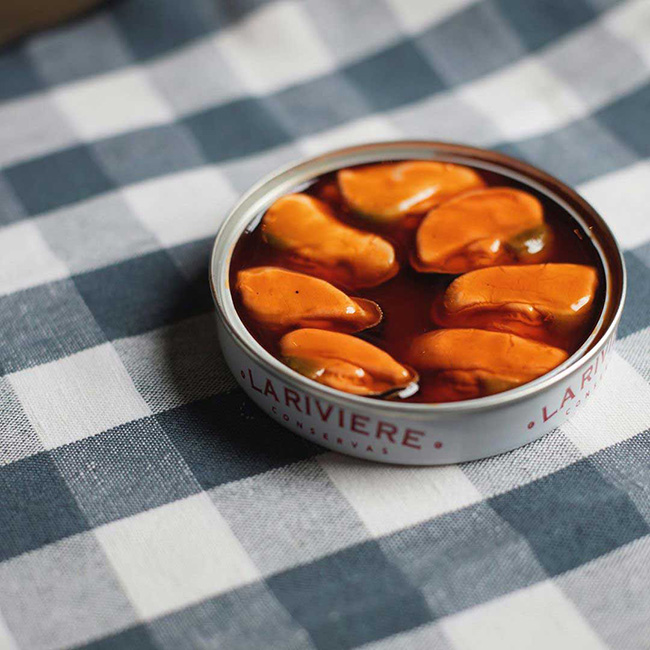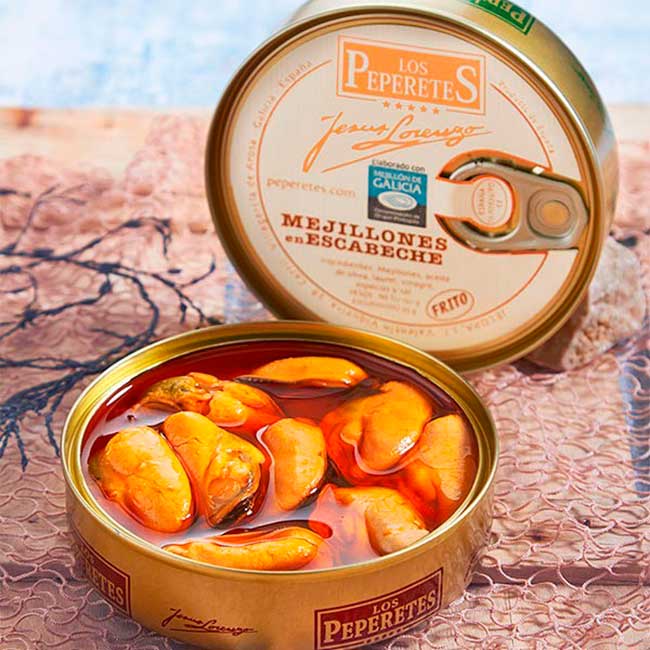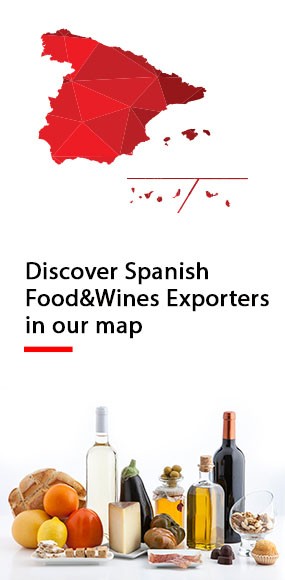.png.transform/rendition-xs/image_image%20(1).png)
Mussels from Spain, an Indulgence from the Sea
Spain is a global leader in canned seafood, but the wild and windy northwest coast of Galicia is another world altogether when it comes to producing premium mussels.

Where tinned food in many other countries is still associated with feeding pets, soldiers, or families on tight budgets, Spain has its own distinct gastronomic culture of conservas. Seafood in particular is prepared and packaged as a gourmet product, to be sold at high-end delis and eaten straight from the can at the best tapas bars. Different coastal zones have their own specialities, from Cantabrian anchovies to Caballa from Andalusia.
Galicia is mussel territory, with an empire of tin around the rias of that region – four deep estuaries on the Atlantic coast, where 60 of Spain’s 145 canneries are located. Most of these fall within the domain of Protected Designation of Origin (PDO) Mexillón de Galicia, the official body that certifies the quality of all fresh and canned mussels from that area.
Leading brands include La Riviere, who harvest the primest, plumpest specimens from the front lines of wooden rearing troughs off the shore of Arosa island. This is less of an industrial process than a “lifestyle”, according to communication and distribution manager Beatriz Fernández Castro.
“We work in the old artesanal way,” says Castro, “placing each product in the can by hand, one by one.” What also sets them apart from neighbours and rivals is an exclusive license (AUGA Mareira) to pack their mussels in seawater, which enhances the flavour and actually reduces the salt content, as well as preserving them for longer. Ideally, says Castro, they should be served directly from the tin, as intended by their careful sizing and positioning within the package.
“Little by little we are slowly educating our customers about this. When they empty the can into another container, all that presentation work is lost … ” While much of their product (which also includes cockels and razor clams) is sold on the domestic market, foreign sales of canned Spanish seafood have been steadily growing in recent years, across the EU and beyond.
This country is the second largest producer in the world, after Thailand, shipping 204,400 tonnes abroad in 2018 to a value of €1.7 billion. An estimated 80% of those exports were sourced from Galicia. And while tuna tends to be the biggest seller, there is a growing awareness of tinned mussels from the rias as a high-quality comestible at the top end of the food service industry. London’s renowned upmarket department stores Harrods and Fortnum & Mason have lately started stocking La Riviere products, while triple-Michelin-starred chef Yannick Alléno recently used their mussels in a dish at his Paris restaurant Pavillon Ledoyen.

There is growing interest in the US, Japan, and Mexico too, spread in part by Galician stalls at international trade and food fairs. There’s a natural resistance to paying premium prices for canned seafood, says Castro, that can only be overcome by actually tasting the mussels, perhaps in a signature escabeche sauce of olive oil, white vinegar, sweet pimentón and bay leaf.
Climate, bateas and the rotation of the Earth
As to exactly why they taste so good, it’s a complex question of meteorology, oceanography, and marine biology. The rotation of the Earth causes coastal upwelling along the western edge of Europe, which in turn brings the famous northerly, or Nordés, winds to the Galician coast through the summer months. Surface water is dragged offshore and replaced by deeper, colder ocean layers, richer in oxygen and nutrients from the seabed, which fertilize those mussels in their wooden cultivation platforms (known as bateas), making them plumper and more flavourful.
The best brands, however, are less affected by virtue of being relatively small and specialised. Where quality itself is virtually guaranteed by natural conditions and old-school farming techniques, these companies trade on their trusted names and reputations. “That’s how we compete,” says Jesús Lorenzo Crespo, patriarch of the Lorenzo Paz family and founder of their conservas brand Los Peperetes. “We’re distinguished by our expertise, our raw materials, our traditional recipes, and especially our family history. But most important is the final result.
“The taste,” says Crespo, “is like a fine wine.”
Text: Stephen Phelan

